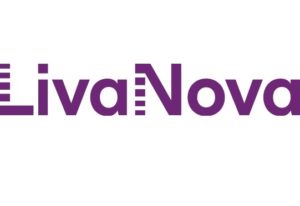
Adding vagus nerve stimulation (VNS) therapy to treatment as usual (TAU) has been demonstrated to improve outcomes in patients with treatment-resistant bipolar depression (TRBD). In a recent news release, LivaNova announces the publication of a new study in the International Journal of Bipolar Disorders, and detail its findings.
The study examined patients from a five-year prospective registry and found 63% of TRBD patients treated with adjunctive VNS therapy in addition to TAU had a significant reduction in depressive symptoms, as measured by a 50% or greater reduction in the Montgomery–Åsberg Depression Rating Scale (MADRS), compared with 39% of patients in the TAU alone group.
The study also showed that TRBD patients treated with adjunctive VNS Therapy experienced both a more durable anti-depressant effect and a significantly greater mean reduction in suicidality score than for patients receiving TAU alone (p < 0.001).
“Given the significant unmet need with regard to the management of bipolar depression patients, it is critical that alternative treatment options for patients with TRBD are explored,” said A John Rush of Duke-National University of Singapore, Singapore. “This study’s findings that adjunctive use of VNS can significantly improve depressive symptoms and reduce suicidal ideation while also increasing the durability of antidepressant effect, promises to transform the lives of patients with difficult-to-treat bipolar depression for the better.”
According to the company’s news release, bipolar patients are symptomatic nearly half of the time and the majority of their symptoms are depression-related, yet safe, effective, long-term treatment options are scarce. Similar to patients with difficult-to-treat depression (DTD), this TRBD subpopulation struggles to get well and stay well with 30% remaining depressed at 12 months despite initiation of antidepressant treatment. A significant fraction of the disease burden in bipolar disorder is suicide-related and it is estimated that between 25% and 60% of individuals with bipolar disorder will attempt suicide at least once in their lives and between 4% and 19% will complete suicide.
The study was conducted with a patient population of 156 TRBD patients with 97 in the adjunctive VNS therapy group and 59 in the TAU group. Before treatment, subjects in the adjunctive VNS therapy group had, on average, suffered from 20.7 lifetime episodes of depression, had approximately three lifetime suicide events and had been treated with nine different therapies, including an antidepressant at some point. In comparison to the TAU group and prior to the study, patients in the adjunctive VNS Therapy group had experienced more episodes of depression, psychiatric hospitalisations, lifetime suicide attempts, along with a higher suicidality score and more severe symptoms based on MADRS and other scales at baseline.
The study concluded that VNS Therapy as an adjunctive treatment to TAU was more effective than TAU alone in reducing depressive symptoms and suicidal ideation. In addition, patients who received adjunctive VNS therapy had a more rapid onset of response and more durable antidepressant effects. The study drew the conclusion that adjunctive VNS therapy is an efficacious antidepressant treatment for patients with TRBD.













